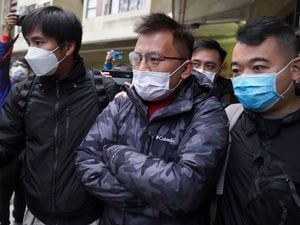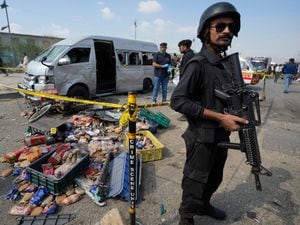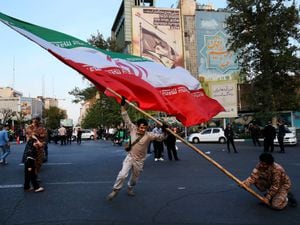Hong Kong journalist granted bail and allowed to leave for overseas fellowship
Ronson Chan, who chairs the Hong Kong Journalists Association, pleaded not guilty to two counts of obstructing the police.

The head of Hong Kong’s largest journalist group has been granted bail and allowed to leave the city for an overseas fellowship two weeks after being arrested for allegedly obstructing police officers while reporting.
Ronson Chan, who chairs the Hong Kong Journalists Association, pleaded not guilty to two counts of obstructing the police.
A conviction could mean up to two years in jail.
Chan was allowed to post bail and leave Hong Kong for a fellowship programme at the University of Oxford later this month on the condition that he keeps the Hong Kong police updated on his address and mobile number while in Britain.
He was arrested while reporting on a homeowners’ meeting in the Mong Kok district earlier this month with a colleague.

Police said the two were behaving in a suspicious manner and were asked to produce proof of identity.
Chan was arrested after he was allegedly unco-operative and refused to show his identity card.
His arrest prompted concern from the city’s Foreign Correspondents’ Club, which said it “supports journalists’ right to cover stories without fear of harassment and arrest”.
The club also called on authorities to exercise “transparency and care” in handling the case.
When asked on Thursday outside the court about his thoughts on press freedom in Hong Kong, Chan said he was not able to discuss details of the case, but said that “everyone in Hong Kong, if you try to observe what is happening, then you can get the answer”.
Hong Kong, once a bastion of press freedom in Asia, has since seen its press freedoms decline after a tough national security law aimed at stamping out dissent was imposed on the city.
Media outlets critical of the government, such as the now-defunct Apple Daily and Stand News, shut down after police raided their offices and arrested executives and journalists.





